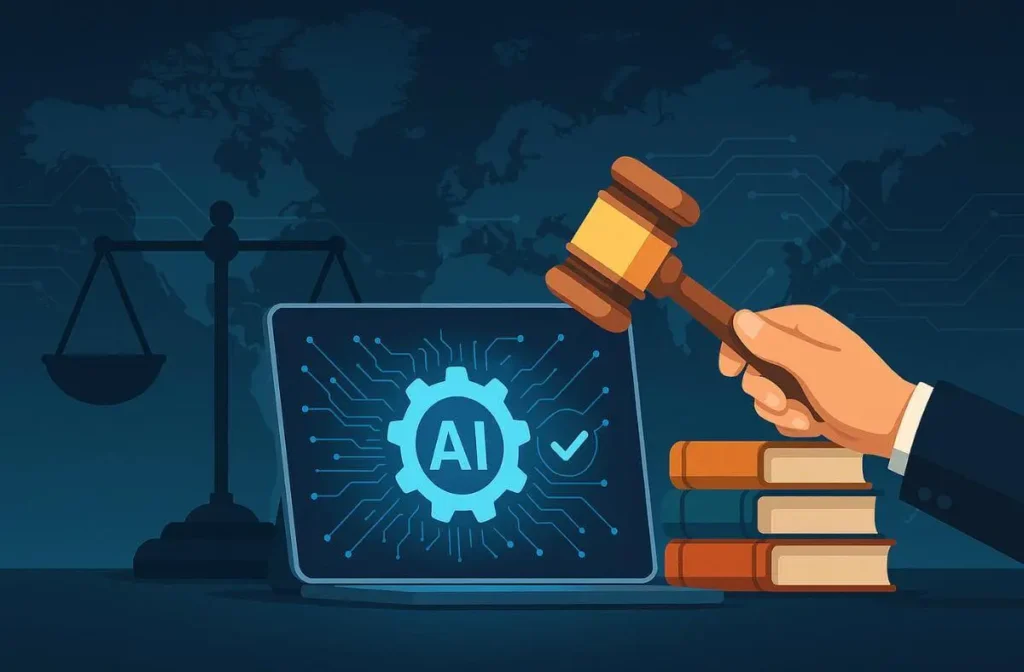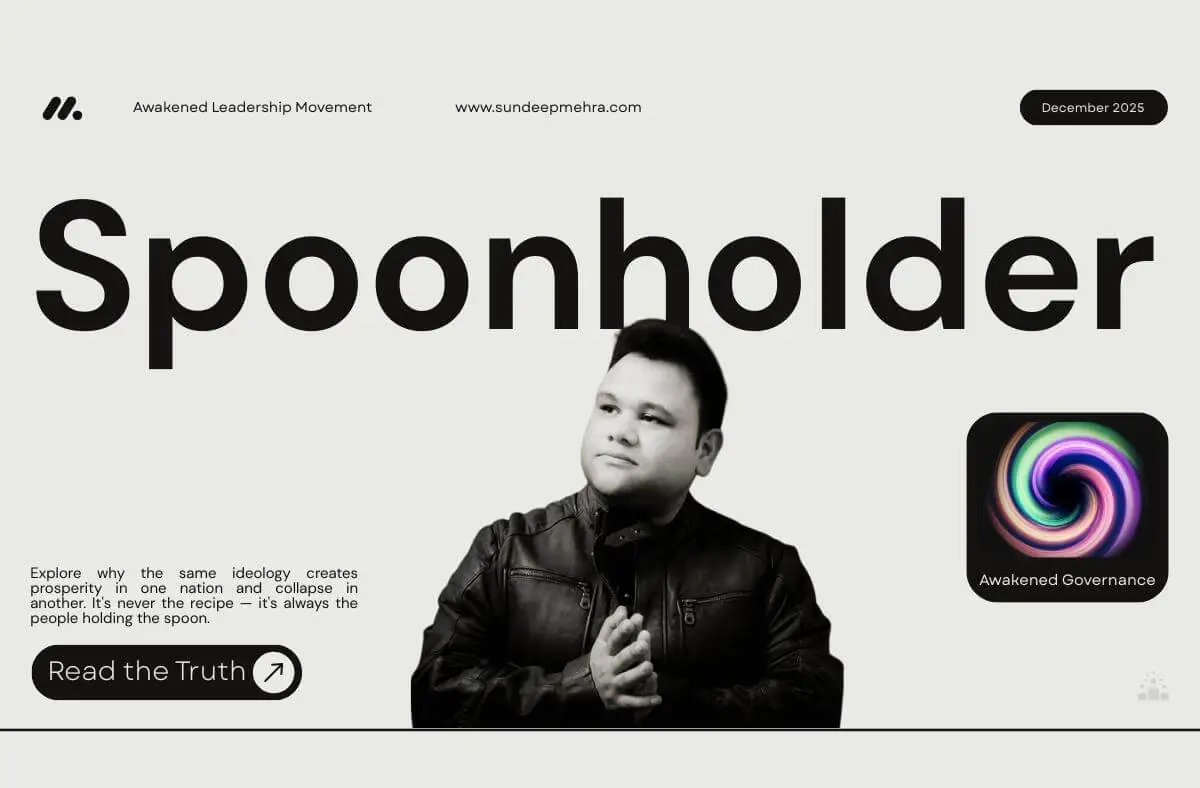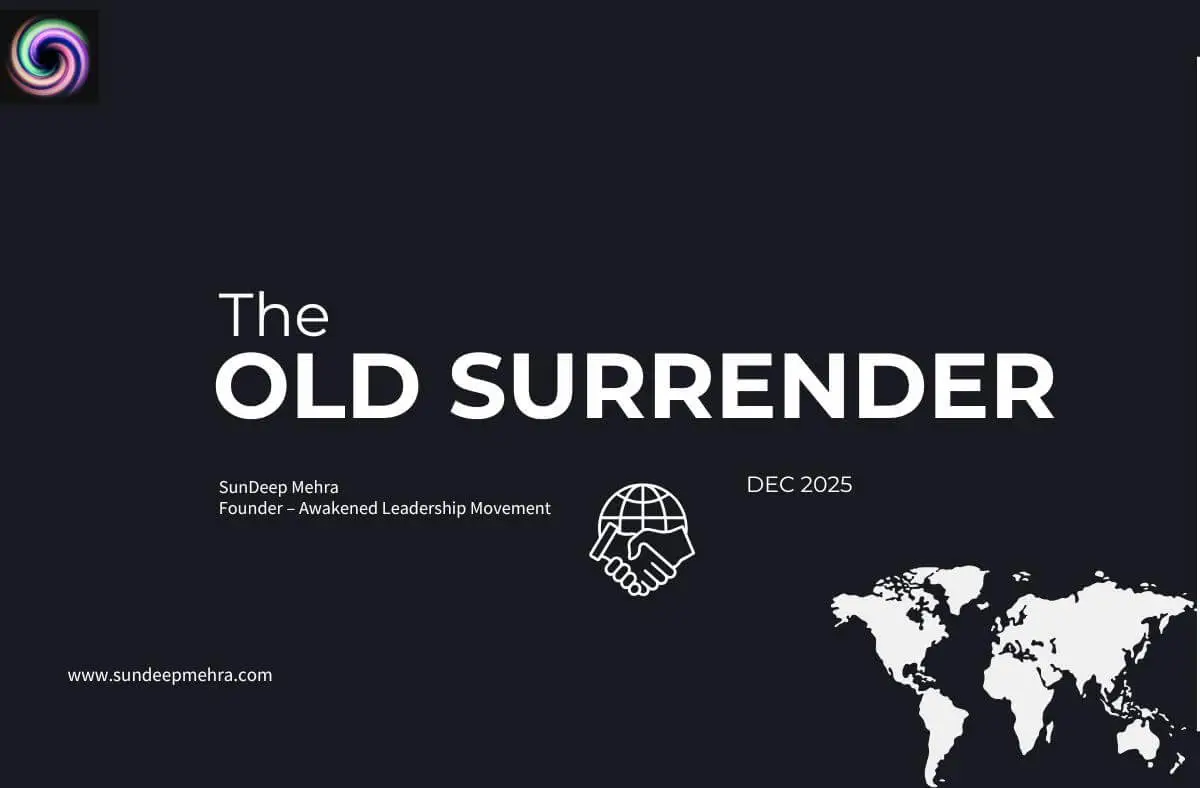
Rethinking AI Certification: The Rise of Global Standards
Rethinking AI certification has become one of the most urgent debates in global governance. Nations and institutions are racing to design frameworks that can assure safety, fairness, and accountability in artificial intelligence. From the EU’s high-risk classification under the AI Act to the U.S. NIST frameworks and China’s sweeping security reviews, certification has emerged as the currency of trust in the digital age. Yet questions remain: is certification truly safeguarding societies, or has it already begun shaping new trade barriers that determine who participates in the AI future? Today we are going to unpack what AI certification really means, the role it is playing, and the developments shaping it across regions—so that we can bring clarity, direction, and a renewed perspective through Awakened Leadership.
What is AI Certification?
AI certification refers to the formal processes, audits, and evaluations designed to ensure that artificial intelligence systems meet defined standards of safety, fairness, transparency, and accountability. Much like quality certifications in manufacturing or medicine, these mechanisms aim to build trust between developers, regulators, and the public.
In practice, certification can take different forms:
- Standards – agreed guidelines for development and deployment.
- Frameworks – voluntary structures that outline best practices.
- Compliance Requirements – mandatory checks imposed by regulators.
- Certifications – formal recognition that a system has passed established criteria.
The intent is straightforward: to prevent harmful outcomes, encourage responsible design, and provide reassurance in a rapidly evolving technological landscape. Yet, while the purpose may be clear, the practice is far from simple. AI certification often reflects the priorities of regions, governments, and industries with the resources to define the rules, leaving smaller innovators and developing nations struggling to keep pace.
But with this comes a deeper reality: not setting high standards risks unleashing chaos through irresponsible and unethical AI development, misleading designs, and unchecked implementation. At the same time, setting overly strict standards risks concentrating power in the hands of a few wealthy nations and corporations, creating barriers for others to adapt and innovate. One path risks manipulation, the other risks disorder. Both dangers are real, and both reveal why the future of AI certification requires awakened AI governance.
AI Certification as a Trade Barrier
The debate around AI certification cannot be separated from questions of access and power. For many startups, research labs, and developing nations, the costs of certification often exceed entire development budgets. What was introduced as a mechanism for safety risks becoming a mechanism of exclusion—where the right to participate in the AI economy belongs only to those who can afford compliance.
This creates three overlapping challenges:
- Fragmentation: regional frameworks such as the EU AI Act, China’s security requirements, and U.S. voluntary structures produce competing rulebooks, dividing the global landscape.
- Exclusion: smaller innovators and developing nations are locked out of markets when they cannot meet expensive requirements.
- Imbalance: certification systems are often written by and for those who already dominate the AI ecosystem.
The outcome is a paradox. Certification, designed to protect societies, can also act as a trade barrier—preserving power structures rather than democratizing innovation. The risk is not simply economic but systemic: if access to “ethical” AI is determined by wealth, then governance itself becomes a form of technological imperialism.
Yet the alternative is equally dangerous. Lowering requirements too far risks allowing unchecked AI systems to spread without accountability, leading to unpredictable harms. The tension between protection and participation is the defining challenge of AI governance today.
Beyond Technical Compliance
The debate around AI certification cannot end with technical audits and compliance paperwork. The deeper issue is not just cost or access—it is intent. On one side, smaller nations and innovators struggle because certification costs can surpass entire development budgets. On the other, wealthy players set the tone of governance while leaving themselves unchecked, shaping the rules in ways that protect their dominance rather than protect society.
This reveals the heart of the challenge: compliance alone does not guarantee ethics. A system can pass every test on paper and still operate without conscience. What matters is whether certification reflects integrity, responsibility, and a genuine commitment to human well-being.
The path forward demands a shift from compliance to trust. Standards must carry the weight of human values—truth, accountability, and transparency—so that no side misuses its position. Wealthier nations must show consideration in how they frame and enforce certification, while emerging players must demonstrate clarity of intent and commitment. This balance is not about easing requirements or hardening them; it is about anchoring them in integrity.
Only when AI governance is rooted in human values can certification move beyond being a technical safeguard and become a true instrument of global trust.
Watch Explainer:
Global Diversity and Local Realities
AI certification cannot be universally transplanted without adaptation. Just as buildings in South Africa must withstand a different climate than those in Northern Europe, governance structures must respond to the realities of the regions they serve. In some nations, the priority is strengthening digital infrastructure; in others, the challenge lies in education, authorship, and the capacity to govern emerging technologies. Certification that ignores these differences risks becoming an imported framework with little relevance to local needs.
Lessons from Culture and Language
Human history offers examples of adaptation done with grace. Languages across the world have merged and evolved without erasing one another. French words enrich English, Spanish expressions shape global communication, and Hindi has absorbed Urdu, creating shared vocabularies of meaning. This natural exchange shows how systems can integrate without domination or collapse.
For AI governance, the same principle applies: certification must evolve through adaptation, not imposition. It should:
- Respect cultural and regional realities while aligning with global trust.
- Build on what already exists rather than replacing entire systems.
- Encourage smooth transitions that make standards more flexible and inclusive.
- Create compatibility without erasing identity.
Global AI governance will only succeed if diversity is treated as an opportunity and a foundation for a more inclusive future, instead of a barrier. Local and regional leadership will play the crucial role. The more fluidly systems adapt, like languages blending into one another, the stronger, more resilient, and more trusted they become.
Towards a Tiered and Evolving Framework
If diversity is the strength of global AI governance, then the framework itself must reflect that truth. To break the cycle of rigid, one-size certification models, AI certification must evolve from rigidity to responsiveness. A tiered approach can provide a pathway:
- Foundational Level: universal baseline for safety, data integrity, and compliance.
- Contextual Level: regional adaptations reflecting cultural, linguistic, and developmental realities.
- Awakened Level: a higher commitment to leadership responsibility, societal impact, and governance integrity.
Such a model does not dilute accountability. It deepens it, aligning standards with both human truth and systemic complexity.
Explore Deep Dive
Who Governs the Governors?
Even a tiered and evolving framework raises one urgent question: who will govern the governors themselves? Governments, independent regulators, third-party auditors, and opportunistic organizations all claim authority in this space. But trust cannot be placed blindly. Who decides the standards? Who monitors those enforcing them? And who ensures that governance does not become another tool for influence and profit?
This is where awakened leadership and awakened AI governance hold the key. Without a deeper accountability rooted in truth and conscience, certification risks collapsing into power struggles. What is needed is a global council of conscience, where regulators, innovators, and leaders of integrity align to safeguard trust beyond politics or opportunism.
Awakened Global Council of Conscience
The future of AI governance demands more than fragmented certifications and competing regulations. It requires a shared body of integrity. A space where regulators, innovators, and awakened leaders come together. The purpose is not to impose dominance but to cultivate trust and commitment. This is the purpose of the Awakened Global Council of Conscience: a living institution built on truth, accountability, and transparency, guiding AI development, AI certification and governance across regions, nations, and industries.
Principles and Structure of the Council
- Human Core Principles: Every decision anchored in truth, accountability, and transparency. Values deeper than compliance or competition.
- Recognition of Diversity: Standards globally interoperable yet locally adaptive, ensuring no region or culture is excluded.
- Prevention of Monopolies: Wealthy blocs prevented from controlling or defining what counts as “ethical AI.”
- Rotational Membership: Members serving limited terms, rotated to prevent entrenched influence and encourage renewal.
- Conflict-Free Service: Independence from institutional or corporate ties during service, safeguarding impartiality.
- Inclusive Representation: Seats for governments, innovators, creators, implementers, cultural voices, and governing bodies, reflecting both policy and ground realities.
- Authority to Hold Power Accountable: Empowered to review even governments and major institutions, ensuring no actor operates unchecked.
Purpose in Action
The Awakened Global Council of Conscience is not a bureaucratic addition. It is a living conscience, created to keep AI governance ethical, adaptable, and accountable. Its role is to strengthen cooperation while honoring identity, to align innovation with responsibility, and to protect the future of AI as a shared human endeavor rather than a domain of power.
Awakened AI Governance and Global Leadership Awakening
Awakened AI Governance is the ground where technology and conscience meet, inseparable from the wider call of Global Leadership Awakening. Together, they mark the shift from governance as control to governance as clarity. The Awakened Leadership Movement brings this vision into practice, ensuring that AI systems, institutions, and nations are guided by truth, accountability, and inclusivity. Awakened Governance, Awakened AI Governance, and Global Leadership Awakening stand as a single path: restoring integrity to leadership and anchoring the future of humanity in wisdom, responsibility, and awakened presence.
Conclusion
AI certification reveals who holds power, builds trust, and takes responsibility. It exposes the makers of the rules, the carriers of the burden, and the forces shaping technology’s path. This fight goes beyond following regulations. It’s about the moral foundation of compliance, the principles driving governance, and the leaders who make it work.
Awakened AI Governance and Global Leadership Awakening restore the focus to truth. They make certification and governance tools for transparency and accountability, not control. They force every leader and institution to measure progress through integrity, not dominance.
The Awakened Leadership Movement turns these ideas into reality. It wakes up leaders, fixes broken systems, and roots technology in responsibility, keeping governance from serving selfish interests and lifting it toward wisdom that serves everyone.
For deeper research, analysis, and systemic clarity, explore the Awakened Leadership Compass — the first-ever GPT tool gifted to humanity for leadership awakening and governance insight. To stay engaged with the latest reflections on AI governance, ethics, and global leadership through the Awakened Leadership perspective, connect with me on LinkedIn and X.
















